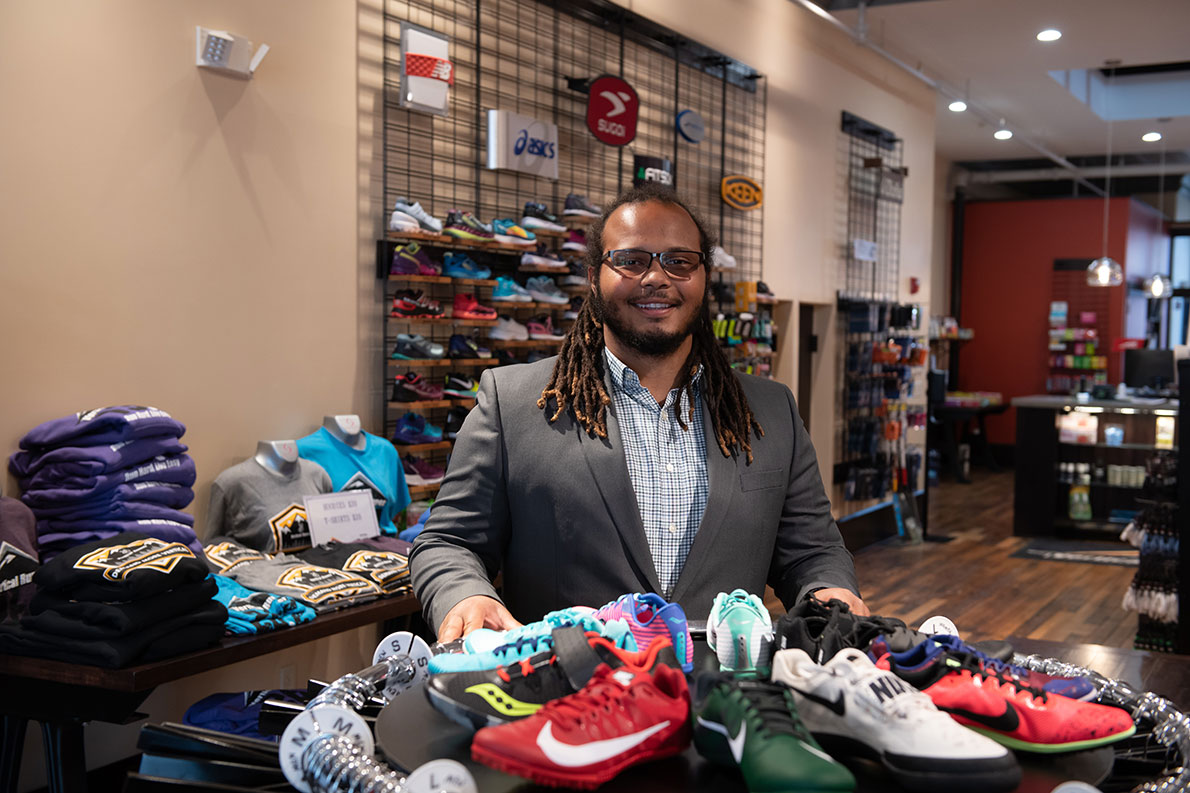
Impact of athlete endorsements on purchasing decisions

Some people like to think of themselves as cool, rational decision makers, while others pride themselves on their intuitive understanding of a situation and just “go with their gut.” But psychologists—and marketers—know there’s more to it than that. In fact, says Marcus Bowers, “people are prone to seeking information that supports previously made choices and beliefs while also being prone to discrediting information that opposes those same choices and beliefs.”
It’s a well-established phenomenon known as pre-decisional distortion that has been demonstrated to affect a variety of purchasing decisions. For his Independent Study, Bowers decided to look at whether it would manifest itself with regard to athletic shoe purchases; what role, if any, athlete endorsement would play in the process; and whether the purchaser’s own athletic self-image would affect the results. He designed and administered a survey to a diverse group of 200 participants all over the country. They were presented with a series of five attributes—including weight, fit characteristics, and athlete endorsement—for each of two shoes, and after each attribute was presented, they were asked three questions. Which shoe did this information favor? Which shoe would you choose right now? How confident are you in that choice? One group of respondents was presented with the athlete endorsement as the first factor, while another was presented with it last.
By some measures, celebrity endorsements figure in 20 percent of all U.S. advertising, and 60 percent of those celebrity endorsers are athletes. The endorsers Bowers presented in his survey were LeBron James of the Los Angeles Lakers, and Damian Lillard of the Portland Trail Blazers.
“Pre-decisional distortion,” Bowers says, “is produced when decision makers who are presented with new information interpret it in favor of the choice that was leading in attractiveness” up to that point, and he found that it was indeed present in the shoe purchase choice exercise. No matter which order the attributes were presented in, “on average, you always end up favoring the one you picked first.” The athlete endorsements had an impact, but it was not as straightforward as Bowers had anticipated.
The shoe endorsed by Damian Lillard received lower favorability ratings, on average, when his endorsement was the first factor presented, compared to when it was the last of the five presented, which was no surprise given the difference in star power between the two endorsers. While Lillard is a four-time All Star who was the NBA’s Rookie of the Year, LeBron James is on a different level, a four-time MVP with three championship rings and one of the most famous athletes in America. What was surprising is that respondents who scored higher on their own athlete identity were more likely to choose the shoe endorsed by Lillard, not Lebron.
“This was the opposite of what we predicted,” Bowers says, but on reflection the results did make sense, because “individuals who are higher in athletic identity have a deeper and more informed knowledge of each athlete.” The result suggests that “individuals who are low in athlete identity may be more swayed by athlete endorsers who possess more fame, where if a company wants to market to a more niche group of individuals who identify highly as athletes, it is not always the athlete with the most fame that provides the best results.”
A four-year starter and defensive leader for the Fighting Scots football team, Bowers himself certainly falls into that category. And thanks to an internship last summer with Quicken Loans, he already knows what he’ll be doing after graduation. Come June, he will start his post-Wooster life as a mortgage banker at the financial giant’s headquarters in his hometown of Detroit.
Posted in Independent Study on July 11, 2019.
Related Posts
Related Areas of Study
Psychology
Do research, work with faculty mentors, and tailor a psychology program to your interests
Major Minor

